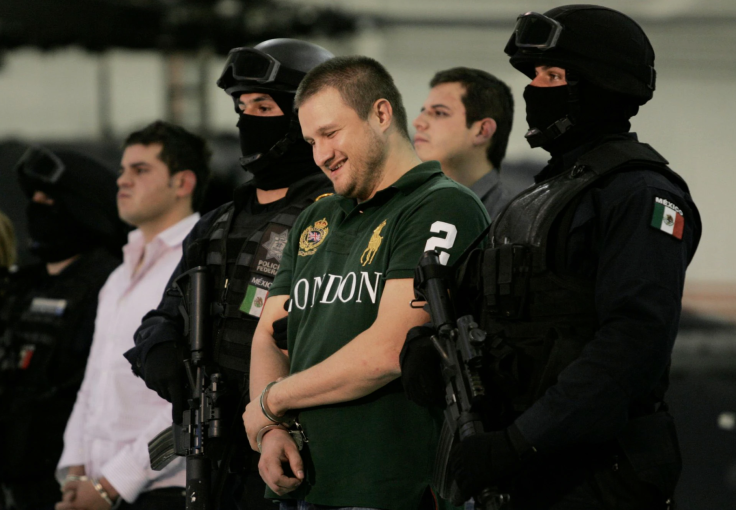Drug Lord 'La Barbie' Listed As No Longer In US Prison Custody
Notorious Texas-born drug lord "La Barbie" is no longer listed as being in the custody of the U.S. Federal Bureau of Prisons, despite having 35 years remaining on his sentence.
Édgar Valdez Villarreal, infamously known as "La Barbie," was extradited from Mexico to Georgia in September 2015. He received a 49-year prison sentence in June 2018.
Villareal was ordered to pay $192 million in restitution after pleading guilty to conspiracy to distribute cocaine, conspiracy to import cocaine, and conspiracy to launder money.
Villarreal was set to be released in July 27, 2057, but he is currently listed as "not in BOP (Bureau of Prisons) custody" at the Florida maximum security federal prison where he was serving his term. according to the Laredo Morning Times.

His current whereabouts are unknown, and it's unclear whether he is in the custody of another agency, said CNN Laredo.
Villarreal, born in Laredo, Texas, became known as "La Barbie" in high school for his pale appearance and blue eyes. He was accused of entering a distribution relationship with Arturo Beltran-Leyva, associated with the Sinaloa Cartel, and Joaquin Guzman-Loera, or "El Chapo."
According to the U.S. State Department, "Valdez-Villarreal was Arturo Beltran-Leyva's most trusted lieutenant and hitman." The State Department also accuses Villareal of leading the Fuerzas Armadas de Arturo, a group of assassins responsible for most of the killings committed by the Beltrán Leyva drug trafficking organization.
"He was a key player in the bloody turf war for control of the Interstate 35 smuggling route into the (United States), and, according to the Drug Enforcement Administration (DEA), the person most responsible for pushing the battle into central and southern Mexico," said the State Department.
In 2020, a report stated Villarreal reportedly provided sensitive information to the DEA and FBI between 2008 and 2010, according to an investigation based on court documents obtained by Anabel Hernández and published in Aristegui Noticias.
In cooperating with U.S. authorities, Villarreal also reportedly passed on confidential information about corrupt Mexican officials and their sharing of sensitive intelligence to members of the Sinaloa Cartel and Beltrán Leyva Organization, according to the documents.
© Copyright IBTimes 2024. All rights reserved.





















